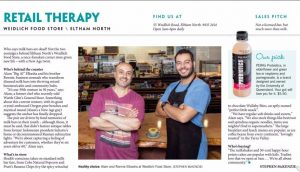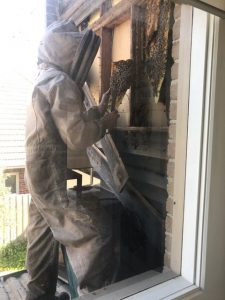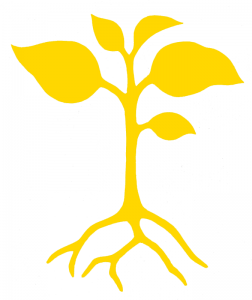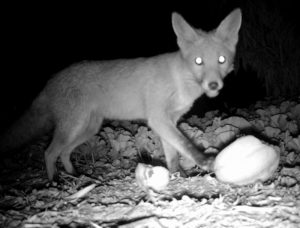The 2016 Golden Seedling awards
- Council of the year – Darebin (for the second year running): for their Homemade Food & Wine Festival, their Backyard Harvest Festival and their get togethers of relevant local organisations.
- Library of the year – Watsonia: for their numerous free events and their community garden.
- Newspaper of the year – The Weekly Review: for their regular featuring of local food individuals and organisations.
- Community group of the year – Sustainable Macleod: for Macleod Organic Community Garden, their well-attended food swaps, their annual auction and their ability to get themselves into the local paper. Honorary mention – Permablitz Melbourne: so many events, all booked out, and all portrayed with such enthusiasm.
- Newsletter contributor of the year – Helen Simpson (for the second year running): for her monthly articles on how to grow various veggies and, just recently, for starting her fabulous new series interviewing local home growers. Honorary mention – Mac McVeigh: for his weekly tips, usually witty and always informative.
- Most popular recurring event link – Home Harvest Manningham: these were also the best attended events (more than 100 people at each event) and had the best free food!.
- Most popular event link – Heide’s kitchen garden: a bit of a surprise; perhaps some of the newsletter readers work for Heide(?).
- Most popular website link – the resources page (for the second year running), mainly due to its section on horse manure (also, for the second year running). Honorary mention – the dog gallery.
- Most popular external link – The Common’s Facebook page: 21 great food articles.
- Most popular newsletter image – food cubes as art.
Introducing David Murray
Whilst writing the words above, I started thinking what a pity it is that there have been no food articles on The Common’s Facebook page since August. So, I investigated and I found the author of the articles. His name is David Murray, he lives in Eltham and I have some great news for you.
First, David has kindly consented for all of his articles to be reproduced on our website. If you haven’t read them before, you’re in for a real treat. Start with the article about beans and work your way alphabetically through the list on the righthand sidebar. If you read one article a day, that will take you all the way thru to the new year!
Second, I had missed some of David’s earlier articles in the mess of pottage that is Facebook. Here are the links to four of those articles:
Third, David has agreed to write some articles specially for this newsletter in the new year(!!). He and I have begun to think about topics but, if you have any suggestions, email me.
Mac’s tip of the week
“Although we have been a bit spoilt with rainfall and cooler temperatures, we are now officially in summer. Your plantings will soon require a greater focus on water needs and water conservation. In planning your watering requirements, make sure that you have mulched all your crops and note that:
- Wilting is normal on hot days, it’s what your plants look like in the evening and morning that counts.
- Morning watering is best.
- Regular moisture levels is the key … to check, a finger in the soil is better than a stick.
“Until next time, remember: dirty hand are good hands.”
Check out the following article that Mac wrote for the SGA website a few years ago: a busy person’s guide to watering systems for vegetable gardening.
Click here to view all of Mac’s tips.
Everything you wanted to know about watering but were afraid to ask
Related to Mac’s tip, Robin Gale-Baker, from Sustainable Macleod, has written an article about the art of watering. As Robin says in her introduction: “Imagine for a moment that you are parched with thirst. Would a teaspoon of water quench that thirst? Or a tablespoon? Or would you need at least a full glass? Chances are that it will be the latter and yet often we do not apply the same principle to plants – especially edible plants. Under-watering can be as detrimental as over-watering. A plant, like us, needs to be adequately hydrated to stay alive but also it needs to be hydrated so it can transport nutrients (particularly calcium) to the whole of its being, and to thrive sufficiently to produce the edible parts: leaves and stems, fruit and flowers, roots and seeds. Here are some tips on what to watch out for.” The detailed discussion then covers edible plants in both pots/punnets and in the ground. Read the full article.
The local shops selling local products (cont)
Following my little article in last week’s newsletter, someone wrote to me asking for the full list of the 170 shops organised by how many local food producers they sold the products of. Maybe he was trying to call my bluff?! Anyhow, you can now find the full list on our website, together with my original words (scroll down to the end).
Vicki’s eucalypt has found a good home
Veni, vidi, cepi. Cf. the 30th November newsletter.
Was Montmorency the first ever Australian food swap?
I was at one of the newer food swaps the other day and they mentioned that they had been inspired by a visit many years ago to the Montmorency Food Swap. The Monty Food Swap started in 2009 but I happen to know that the Greenborough food swap started a bit earlier. So, the question actually is: was Montmorency the second ever Australian food swap? Anyhow, the organiser of the swap, Katherine Barling, has written in: “Now in our 7th year, our local gathering for home growers and aspiring home growers continues to inspire and connect and nurture our green thumbs. In the warmer months, it is held in the Were Street Park. It is held on the second Sunday in January (first Sunday every other month). Our next food swap will be on Sunday, 8th January, from 10.30am to 11.30am. Bring your excess – which could be silverbeet, lettuce, rhubarb, citrus, herbs, preserves or seedlings. Swap for something else and enjoy a friendly chat with other locals. Bring your visitors, children or dogs too. It’s right next to the shops and you can even have a coffee in a ceramic cup (and take the cup back afterwards). All welcome. Enquiries to Katherine 0439 652680.”
Who says milk bars are dead?
 Are milk bars an inevitable (and unfortunate) casualty of ‘progress’? Not according to these two brothers.
Are milk bars an inevitable (and unfortunate) casualty of ‘progress’? Not according to these two brothers.
If you ever have any bees that need rescuing …
 Frankie Spranger, from Hurstbridge-based Bee Rescue, has sent in a picture of one of his latest rescues.
Frankie Spranger, from Hurstbridge-based Bee Rescue, has sent in a picture of one of his latest rescues.
Dugald Noyes, Head Gardener at Heide Museum of Modern Art
Dugald has been interviewed by Sustainable Gardening Australia. Read the interview.
Are you vegetarian?
If so, Dana Thomson suggests that you might be interested in Sustainable Table’s vegetarian Christmas lunch menu.
New events
zip.
Summary of upcoming events
Until end January
- Gingerbread houses: Saturday, 24th December, 1-5pm.
- Gingerbread houses: Sunday, 25th December, 1-5pm.
- Become a junior chocolatier: Tuesday, 10th January, 9-9.45am.
- Become a junior chocolatier: Tuesday, 10th January, 10-10.45am.
- Become a junior chocolatier: Tuesday, 10th January, 11-11.45am.
- Become a junior chocolatier: Tuesday, 10th January, midday-12.45pm.
- Become a junior chocolatier: Tuesday, 10th January, 1.30-2.15pm.
- Become a junior chocolatier: Tuesday, 10th January, 2.30-3.15pm.
- Become a junior chocolatier: Wednesday, 11th January, 9-9.45am.
- Become a junior chocolatier: Wednesday, 11th January, 10-10.45am.
- Become a junior chocolatier: Wednesday, 11th January, 11-11.45am.
- Become a junior chocolatier: Wednesday, 11th January, midday-12.45pm.
- Become a junior chocolatier: Wednesday, 11th January, 1.30-2.15pm.
- Become a junior chocolatier: Wednesday, 11th January, 2.30-3.15pm.
- Become a junior chocolatier: Tuesday, 17th January, 9-9.45am.
- Become a junior chocolatier: Tuesday, 17th January, 10-10.45am.
- Become a junior chocolatier: Tuesday, 17th January, 11-11.45am.
- Become a junior chocolatier: Tuesday, 17th January, midday-12.45pm.
- Become a junior chocolatier: Tuesday, 17th January, 1.30-2.15pm.
- Become a junior chocolatier: Tuesday, 17th January, 2.30-3.15pm.
- Become a junior chocolatier: Wednesday, 18th January, 9-9.45am.
- Become a junior chocolatier: Wednesday, 18th January, 10-10.45am.
- Become a junior chocolatier: Wednesday, 18th January, 11-11.45am.
- Become a junior chocolatier: Wednesday, 18th January, midday-12.45pm.
- Become a junior chocolatier: Wednesday, 18th January, 1.30-2.15pm.
- Become a junior chocolatier: Wednesday, 18th January, 2.30-3.15pm.
- Beekeeping workshop: Saturday, 21st January, 9-11am.
- Victorian cider & pork festival: Monday, 23rd January and Tuesday, 24th January, 11am-7pm.
- Become a junior chocolatier: Tuesday, 24th January, 9-9.45am.
- Become a junior chocolatier: Tuesday, 24th January, 10-10.45am.
- Become a junior chocolatier: Tuesday, 24th January, 11-11.45am.
- Become a junior chocolatier: Tuesday, 24th January, midday-12.45pm.
- Become a junior chocolatier: Tuesday, 24th January, 1.30-2.15pm.
- Become a junior chocolatier: Tuesday, 24th January, 2.30-3.15pm.
That’s a lot of chocolate!
Click here for the complete calendar of upcoming events. Click here for help in how to view the calendar selectively (e.g. search for events in a given suburb).


